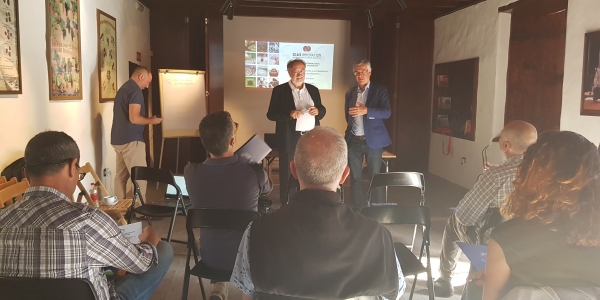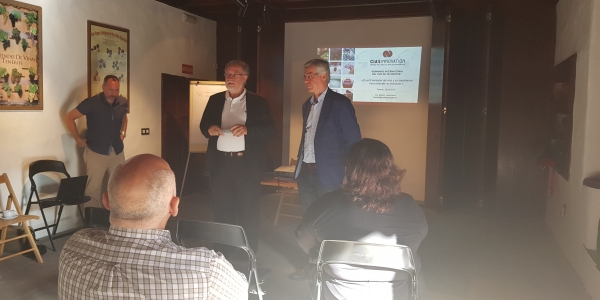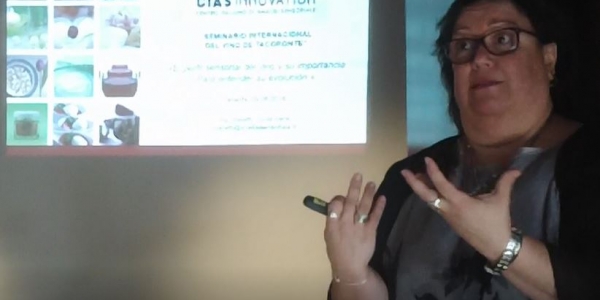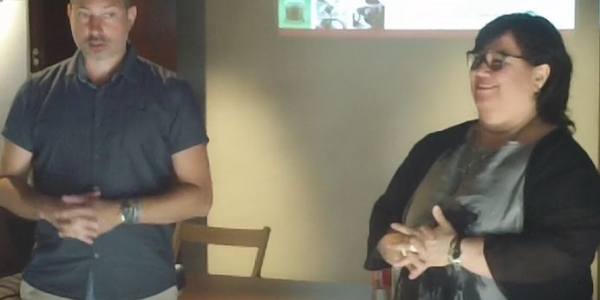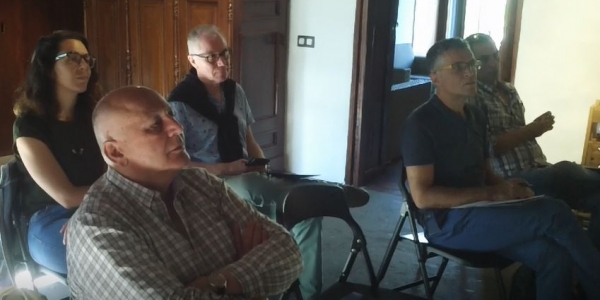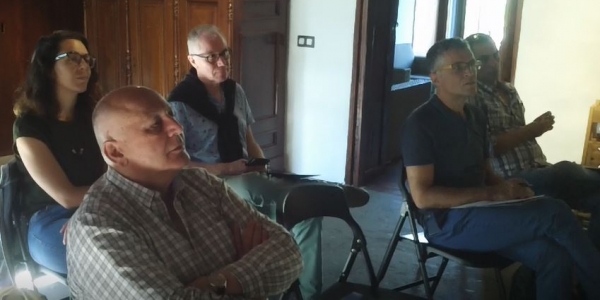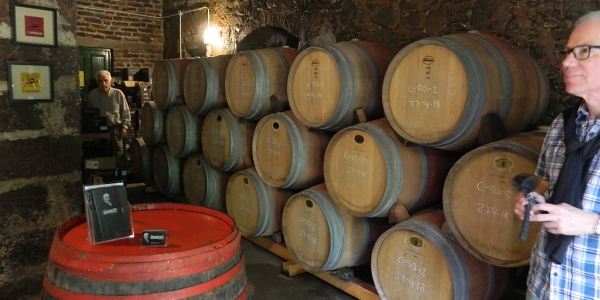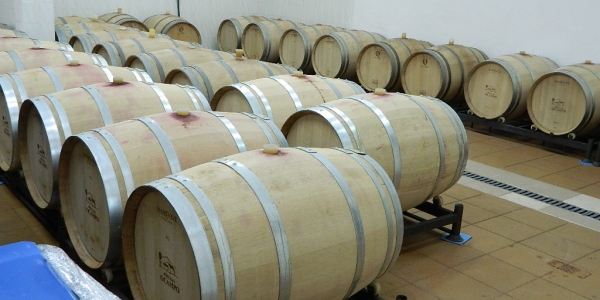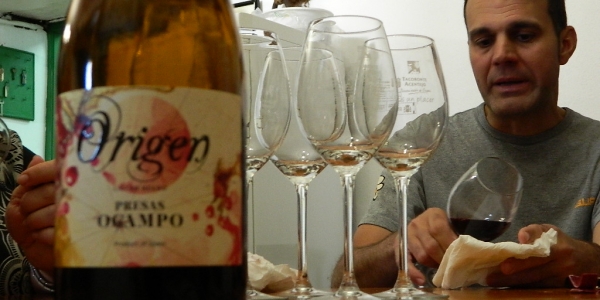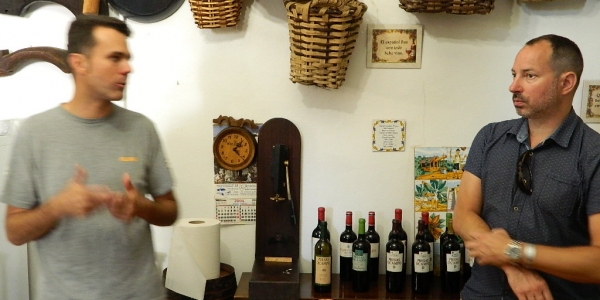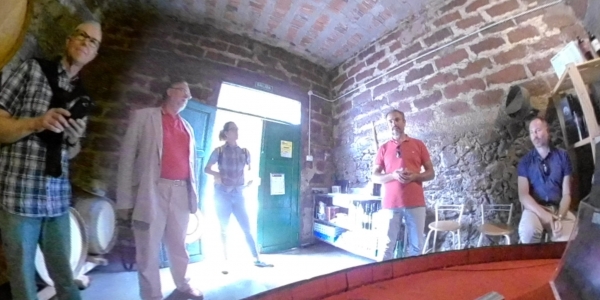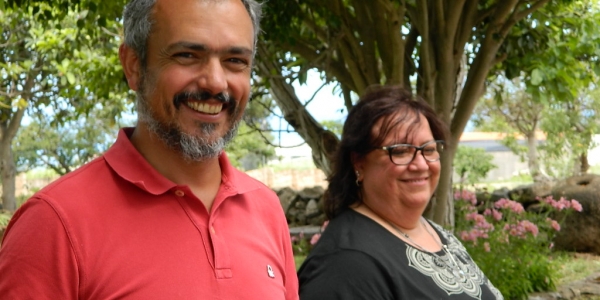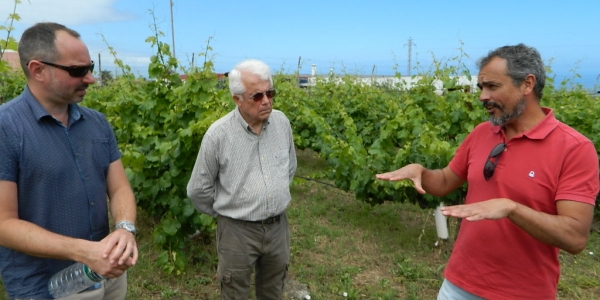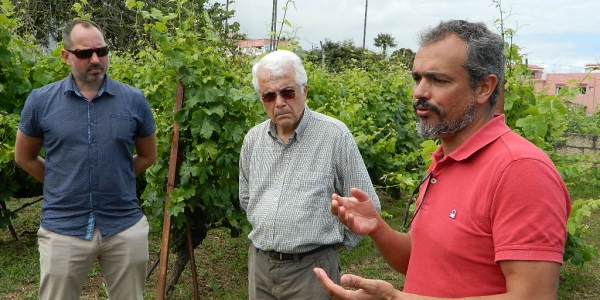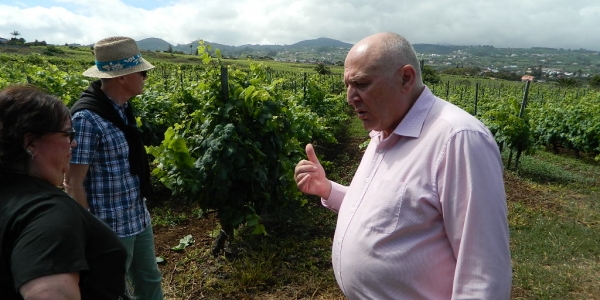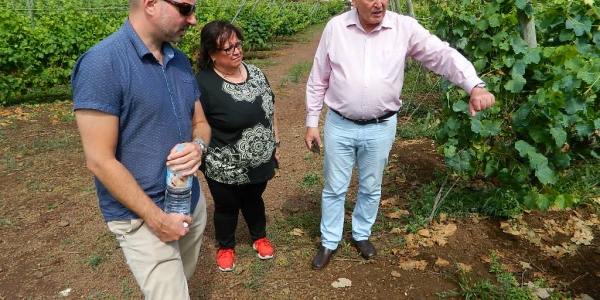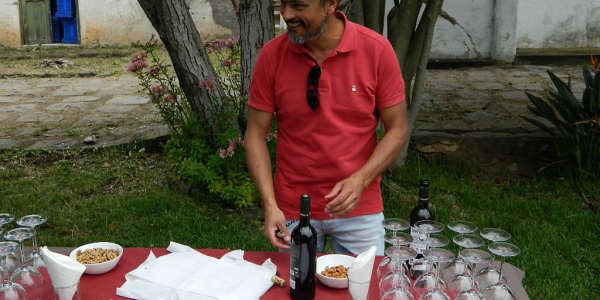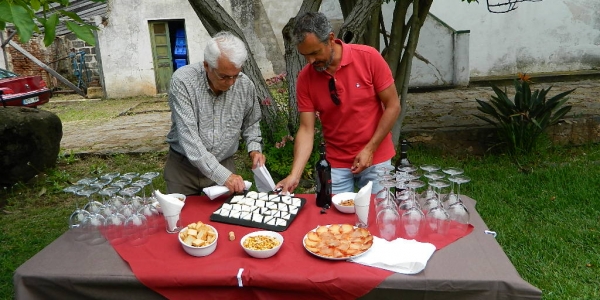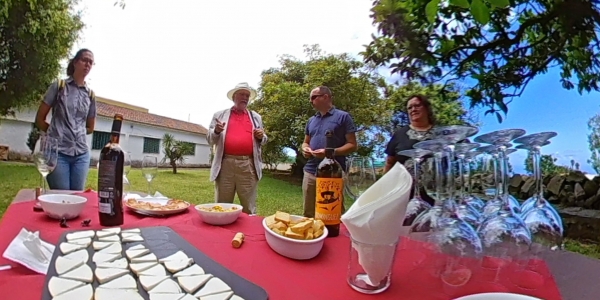The International Wine Seminar organized by the Municipality of Tacoronte in cooperation with Humbodt Cosmos Multiversity with special concentration on the Tacoronte-Acentejo area produced most interesting insights on the wine business in Tenerife.
The Wine Seminar followed the schedule as announced, with a first day “theoretical” introduction and discussion, and, on second day, a series of visits to wine growers and wine makers and distributors.
The attendees of the seminar received a well balanced and representative presentation of three different types of wine entrepreneurs:
- A first hand wine maker, demonstrating the technics for wine production: “Presas Ocampo“,
- A wine grower cultivating a large territory (around 20 hectares) cultivating many different sorts of wine: AGRYENCA and
- A typical family run wine cellar/”Bodega” (in the fourth generation): Bodega Domínguez
The participants learned a lot about the practical conditions of wine making in the area of the Acentejo, in specific how regulations take influence in the wine quality and offerings, on the great multitude of grapes cultivated and the relatively small quantities per sorts of grape leading to a highly differentiated spectrum of wines offered in relatively small lots.
Conclusions
The audience attending the event was most actively engaging in discussions, which was highly appreciated, also by the lectureres, since it laid the grounds for a much better understanding of the changes of the wine business in Tenerife and in Acentejo in specific. The key insights gained and of value for future developments are:
- The quantities produced per territory are small, i.e. it is not possible to produce larger quantitites in an endurable way.
- The earnings per grapevine are low in comparison to the productivity in other wine regions. This also holds in comparison to other types of crops grown in the island (e.g. banana, avocado, …)
- Most of the wines are produced and sold as “Joven”, as there do not exist larger storage facilities and the production of one year in general must be sold in this period.
- Cooperation between the actors is limited, which could be a barrier for larger campaigns promoting the local wine.
- The production and thereby the offer to the market are heavily influenced by the governing regulations. In the end it is even considered, that regulation is key to modernise the Acentejo wine business.
- Peculiar sensory profiles of the Tacoronte-Acentejo wines are not clearly defined in respect to the buyer/consumer. Strong and well defined profiles, uniformly communicated can be considered as an stable instrument for promotion.
- Local grape varietals such as Listán Negro are unknown to international customers. The Wine Boards (WB from here onwards) of the Canaries such as Tacoronte-Acentejo are rather small. Producers themselves do not seem to be totally convinced of the WB system and mention the designated region of origin only when specifically asked.
- The complicated quarantine system for imported vines (due to risk to finally import phylloxera to the island) is an obstacle for innovation. In challenging years like 2018
(peronospora, oidium and botryties due to high humidity) new fungus resistant varietals could help in mitigating the entrepreneurial risk. - The tradition of blended wines in most WB and producing single-varietal wines such as Malvasía or Negramoll is not in favor of manifesting a geographically based marketing of the WB umbrella brands. It rather leads to consumer confusion, especially for laypeople.
- A collective effort to create a sustainable concept for culinary and wine tourism on the island seems to be missing. In order to achieve higher prices for the wines (due to higher production costs and low yields a must) and a strong domestic demand on the island (due to high shipping costs desirable and advantageous) cooperation and a common strategy need
to be established and fostered.


